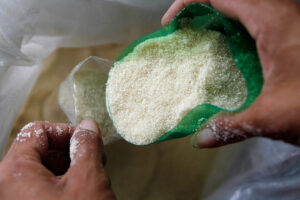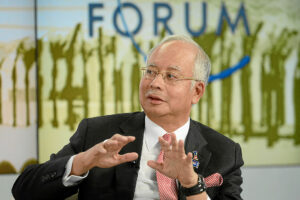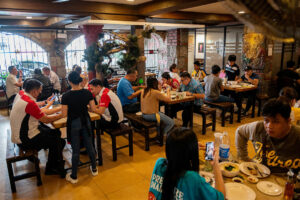New SRA board expected to work closely with stakeholders

By Kyle Aristophere T. Atienza, Reporter
INDUSTRY PLAYERS expect the Sugar Regulatory Administration (SRA) to improve its coordination with stakeholders and ensure the protection of local producers after President Ferdinand R. Marcos, Jr. appointed new officials.
“The recent appointments by President Marcos give us hope that we will have a better SRA that will truly work for and be there for the industry stakeholders,” United Sugar Producers Federation President Manuel R. Lamata said in a Viber message.
The appointments were recommended by Negros Oriental Vice-Governor Jeffrey Ferrer, Mr. Lamata said.
Negros Oriental is one of the Philippines’ largest sugar producers.
Mr. Lamata said the SRA’s regulations should undergo thorough consultation to come up with a “collective and cohesive win-win solution that is fair to all stakeholders and for the consumers especially.”
He emphasized that sugar importation should be a “last remedy” to address a supply shortage.
“SRA must do a balancing act between the producers, the consumers, the millers, and industrial users to ensure that no sector takes advantage of the others,” Mr. Lamata said.
Mr. Marcos on Saturday named three new officials of the Sugar Regulatory Board (SRB), including David John Thaddeus P. Alba as SRA acting administrator.
Mr. Alba replaced Hermenegildo R. Serafica, who resigned along with other board officials after the agency approved an order allowing the importation of 300,000 metric tons (MT) of sugar, which Mr. Marcos’ office considered as “illegal” or “unauthorized.”
Other appointees named by Mr. Marcos, who chairs the sugar board as Agriculture chief, are Pablo Luis S. Azcona, who will represent sugar planters, and Mitzi V. Mangwag, who will represent sugar millers.
“We do have to rethink the SRA. It has not been very effective in its role of local industry development,” Albay Representative and House Ways and Means Committee Chair Jose Ma. Clemente S. Salceda said in a Viber message.
“Low utilization rates of the Sugarcane Industry Development Act (SIDA) and the Tax Reform for Acceleration and Inclusion (TRAIN) law funds have hounded that agency,” he added, calling SRA a “failed agency.”
The TRAIN law raised excise taxes on petroleum products and sugar-sweetened beverages (SSB). Under the law, a significant portion of taxes from SSB should be allocated to the sugar industry.
Mr. Salceda said there should be “a more technical panel” headed by the Department of Agriculture and composed of planters, millers, industrial users, consumer groups “to deliberate on whether we need to import sugar and how much.”
The panel should also include a representative from the Bangko Sentral ng Pilipinas “for inflation targeting” and the National Economic and Development Authority (NEDA) to assess “economic impacts,” Mr. Salceda said.
George T. Barcelon, president of the Philippine Chamber of Commerce and Industry, hopes that the Department of Trade and Industry (DTI) will play a more crucial role in ensuring that sugar supply is adequate and prices remain low.
“The SRA should also work with the DTI. We hope to see the active role of the DTI. It should be on top of sugar price increases,” Mr. Barcelon said by telephone. “Businesses need affordable sugar.”
LIBERALIZATIONMeanwhile, Mr. Salceda warned against plans to allow importation of sugar without any government regulation, saying it “will definitely hurt farms — especially in this time of high fertilizer, fuel, and labor prices.”
“As I warned before, we have to be circumspect about the liberalization of the sugar sector. The sugar production sector is among the most labor-intensive sectors in the agriculture sector, needing 1.4 workers per hectare on average compared to 0.6 worker for rice, and 0.7 for the whole sector,” he said, adding the benefits are not clear.
The government has intensified its crackdown on market players allegedly hoarding sugar, making surprise inspections in some warehouses since last week.
On Saturday night, Mr. Marcos’ office announced the seizure of at least 60,000 bags of sugar in a series of inspections in different warehouses in Bulacan.
Customs personnel used their visitorial power to inspect four warehouses in Guiguinto, Bulacan late Saturday afternoon, Press Secretary Trixie Cruz-Angeles said in a news release.
She said authorities found imported sugar from Thailand at 50 kilograms per sack. Authorities also learned that the import permit used for the Thai sugar “was the allocation for Sugar Order No. 3 issued last February by the SRB,” she added.
Before the inspection in Bulacan, personnel of the Subic Port customs have also seized 140,000 bags of imported sugar from Thailand equivalent to 7,000 MT.
“The huge volume of sugar discovered by authorities in the various inspected warehouses in Luzon has led Malacañang to conclude that the sugar shortage is artificial, brought about by the hoarding of sugar traders who want to rake-in huge profits from the sudden spike in sugar prices.”
Mr. Marcos, Senate President Juan Miguel F. Zubiri, and sugar stakeholders recently reached a consensus to import 150,000 MT of sugar.




